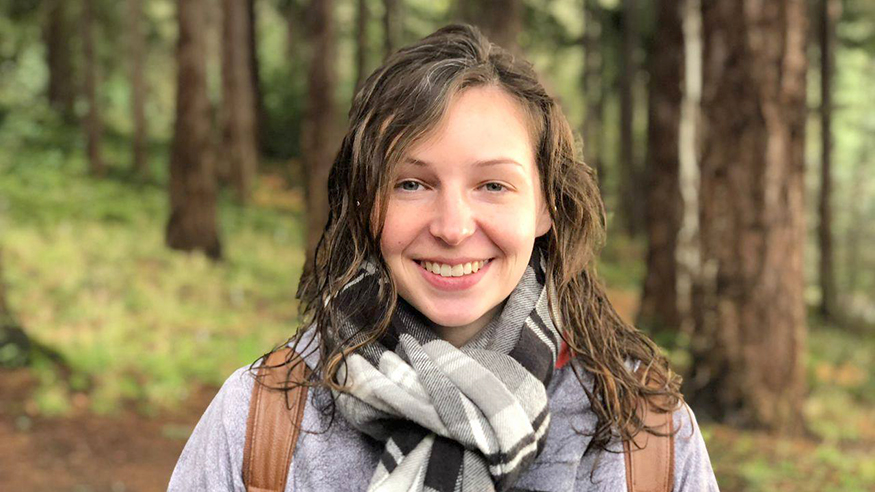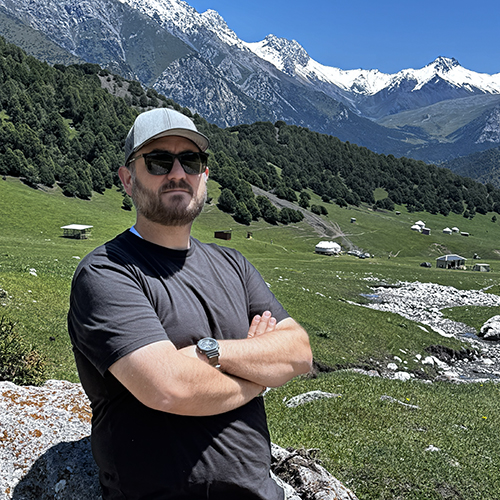
As a UW PhD student in applied mathematics, I initially struggled to adapt to graduate school. Because I was moving from an undergraduate biology program to a graduate applied mathematics program, it was difficult to relate to mathematics without reverting to the intellectual framework I had developed for the experimental sciences. I found myself questioning how to adapt to the new environment, whether I should move to a different field of study, or perhaps if I should leave academia altogether. These three choices are not unique to a floundering graduate student. Every single creature faces the same three choices in any environment for which it is not already optimized.
When a creature finds itself in an unfavorable environment, it must choose between three potential options: it can adapt to its new circumstances — by altering its behavior in the short term, or perhaps by evolving over time to better fit its new environment. Alternatively, this creature may migrate to a new environment more suited to its current needs. If the organism cannot adapt to its circumstances but remains in its same place, its population will, over time, dwindle and perish.
Like those organisms, I moved into an unfamiliar environment when I moved from what I knew – biology – to that which I did not: mathematics. I was struggling; I needed to adapt to survive. Although I am still in the beginning stages of my career in applied mathematics, I would like to share five lessons on adaptation that I have learned thus far.
Lesson 1: Adaptation is not painless. Unaware that first-year problem sets were largely meant to be worked on collaboratively, I sequestered myself in my Eastlake microstudio, struggling alone with a mountain of work, as fits of rain spattered against the windows and the distant roar of the I5 waxed and waned with the clock. I avoided my colleagues, fearful that they would see through my farce and identify me as an imposter. These fears, and these isolating behaviors, formed a feedback loop, as the more I self-isolated, the worse I performed in my coursework. Breaking this loop, humbling myself, and reaching out to my community was one of the hardest things I have done here, but it was key to adapting rather than migrating (to a different program).
I am confident that the adaptation skills we PhD students learn here will aid us in future endeavors, whatever they may be.
Lesson 2: Adaptation is easier in a community. Adaptation, for me, meant confronting those fears, reaching out for help, and leveraging my colleagues’ strengths and backgrounds. We can, and should, learn from others’ mistakes and triumphs. The importance of a good support network cannot be overstated.
Lesson 3: Everyone must adapt; what differs is the timescale on which these adaptations take place. Several of my peers in my cohort have extensive mathematical backgrounds, yet they struggled with imposter syndrome for other reasons. Some sailed into the program, confident in what they desired to research, only to realize partway through that they were wrong, that they needed to adapt or face the death of their passion. I am endlessly impressed by the strength and resolve of these colleagues as they take control of their education, steering their path away from what they once knew best and courageously toward their passions, which lie partly in the shadow of the unknown. These are some of the strongest people I know, and I am better for having known them (see Lesson 2).
Lesson 4: Specific adaptations may be surprising. Many people expect to work harder and put in longer hours during graduate school, but necessary adaptations are often subtler and more individualized. Part of my adaptation to my field was treating a latent mental health disorder that, at some level, I had been aware of (and ignoring) for some time. My support network helped me realize that depression was playing a larger role in my life than I had originally suspected. With the help of some medication to modulate my personal neurochemical imbalances, my work in the applied mathematics department is proceeding much more smoothly than before.
Lesson 5: Adaptation is an ongoing process. Evolutionary processes favor those with more “reproductive opportunities” (e.g., conference talks, publications, GitHub forks, etc.) at any given moment, but the shape of the evolutionary landscape changes over time. What works best for someone in year 1 may work poorly in year 5, and this is not to be unexpected. Keeping an open mind and a flexible stance optimizes one’s chances to adapt to changing situations.
When an organism finds itself in an unfamiliar environment, it can either adapt, die, or migrate. These options are not so much choices as they are consequences of one’s actions, deliberate as well as accidental. Thus, it is as much by dedicated hard work as it is by luck that I ended up migrating and adapting to such a supportive, exciting interdisciplinary environment as this. I am confident that the adaptation skills we PhD students learn here will aid us in future endeavors, whatever they may be.
More Stories

AI in the Classroom? For Faculty, It's Complicated
Three College of Arts & Sciences professors discuss the impact of AI on their teaching and on student learning. The consensus? It’s complicated.

A Sports Obsession Inspires a Career
Thuc Nhi Nguyen got her start the UW Daily. Now she's a sports reporter for Los Angeles Times, writing about the Lakers and the Olympics.

Through Soil Science, an Adventure in Kyrgyzstan
Chemistry PhD alum Jonathan Cox spent most of 2025 in Kyrgyzstan, helping farmers improve their soil—and their crops—through soil testing.
